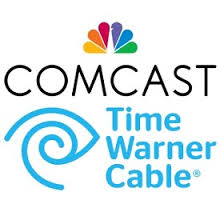Comcast's Arbogast: TWC Deal Reflects Reality That Regional Model Is Untenable
The smarter way to stay on top of the multichannel video marketplace. Sign up below.
You are now subscribed
Your newsletter sign-up was successful

Rebecca Arbogast, vice president, global public policy, for Comcast, framed the proposed Time Warner Cable merger Tuesday as a not antitrust harm, no foul meld that would benefit TWC subs without reducing, and indeed increasing, competition. She also calls it a recognition that the regional cable model is no longer working.
At a Free State Foundation telecom conference in Washington Tuesday (March 18), Arbogast said the deal reflects market realities.
"The simple fact is that times have changed, and so the regional model of cable footprints just isn't tenable any longer given that the companies we're competing against have national footprints and it's important to be able to have that scale, not just to expand the speed and get the deep video libraries, but also to do things that are kind of hidden behind the scenes." She cited cybersecurity, for one. "You really need to have a base over which to spread that research and development."
On the subject of the deal increasing competition, she cited creating a stronger business services competitor to incumbents AT&T and Verizon. She said that element does not get a lot of attention from the advocacy groups, "but I think is incredibly important for economic growth and development and jobs."
She said that the deal is neither horizontal concentration nor vertical acquisition: "It's an expansion of a footprint."
Comcast has even promised not to expand that footprint beyond the FCC's former 30% nation cap on subs, even though the courts have thrown out that cap.
She said that expansion presents a "very limited set of issues," while at the same time presenting a lot of benefits for consumers in that expanded footprint--Time Warner Cable subs.
To that point, she said, Comcast's innovations in speed and services will be extended to those TWC broadband customers "over time." On the video side, she extolled the virtues of Comcast's X1 content access platform. She also talked about Comcast's "deep bench" of video available that can extend to TWC's footprint.
In sum, she said, there will be benefits without a reduction in competition. "There will be no fewer services or competitors that will be available. In fact, it probably will increase competition. She said those who have suggested there will be no incentive to upgrade and invest in improving the companies are being proven wrong.
Free State Foundation president Randolph May pointed out that similar language was being used to criticize the Comcast/TWC merger and its feared dominance of the Internet and video marketplace were leveled at the Time Warner/AOL merger, which hardly became the 800-pound gorilla in broadband.
The smarter way to stay on top of the multichannel video marketplace. Sign up below.
Contributing editor John Eggerton has been an editor and/or writer on media regulation, legislation and policy for over four decades, including covering the FCC, FTC, Congress, the major media trade associations, and the federal courts. In addition to Multichannel News and Broadcasting + Cable, his work has appeared in Radio World, TV Technology, TV Fax, This Week in Consumer Electronics, Variety and the Encyclopedia Britannica.

